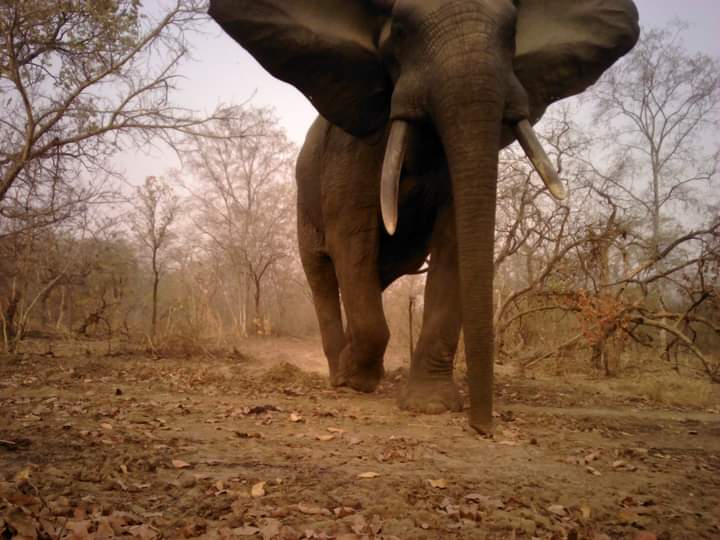Climate Change & Energy
Forest guards warned against poaching at the Mole National Park
Source: ghenvironment.com - April 2, 2022

Giant African elephant at the Mole National Park
The Municipal Chief Executive for West Gonja, Musah Kusubari has admonished resource guards of the biggest game reserve in Ghana, the Mole National Park to endeavor at all times to protect the animals and plant species in the park.
Speaking at a refresher training for some 75 resource guards deployed at the Mole National Park, the MCE said the protection of the resources in the park was not negotiable to the workers whose livelihood was dependent on the existence of the very park resources.
He added that, "without the forest reserve and without these animals and plant species, you wouldn't be here...". He reiterated that discipline and patience were key ingredients to success, calling on the trainees especially, the newly inducted forest guards to humble themselves and learn from their leaders and those ahead of them.
"Count yourself very lucky to be selected among the privileged few to work in this park. So, do your very best to protect the animals. "You are here to protect the forest, so that generations yet unborn will also come and benefit from your sacrifice. If the resources in the forest are depleted and destroyed, future generations will suffer from your negligence of duty," he stated.
The Park Manager for the Mole National Park, Ali Mahama, called on staff to intensify their efforts at protecting the park as an important heritage for future generations.
He admonished the trainees, especially the new staff to abreast themselves with the collective bargaining agreement and work towards the vision of protecting the park for the future generations. He also acknowledged the efforts of the CITES-MIKE programme for funding the refresher training which was aimed at empowering the trainees with skills to help improve park protection and field activities.
The Monitoring the Illegal Killing of Elephants(MIKE) programme in his words, was established by the United Nations Convention on International Trade in Endangered Species of Wild Fauna and Flora (CITES) and is largely dependent on donor support with the European Union (EU) being the most important donor for the CITES-MIKE programme.
Alfred Bara, who spoke on behalf of the instructors took trainees through an overview of the training modules and various sessions. He encouraged the trainees to take the course structures very seriously.
According to him, one important tool for forest law enforcement was the establishment and manning of observation post. He commended the park and training group for working without casualties.
He also encouraged the trainees to share the knowledge acquired and discipline themselves within the work ethics of the Forestry Commission.
Instructors took trainees through intensive first aid and life saver training, parade deportment and drills, patrol formation, patrol tactics, bush craft, protected area conflict management, leadership and team building, and an introduction to the Forestry Commission's Human Resource policy as well as the consolidated Wildlife laws of Ghana.
 Giant African elephant at the Mole National Park
Giant African elephant at the Mole National Park

 Giant African elephant at the Mole National Park
Giant African elephant at the Mole National Park
Yaw
April 7, 2022